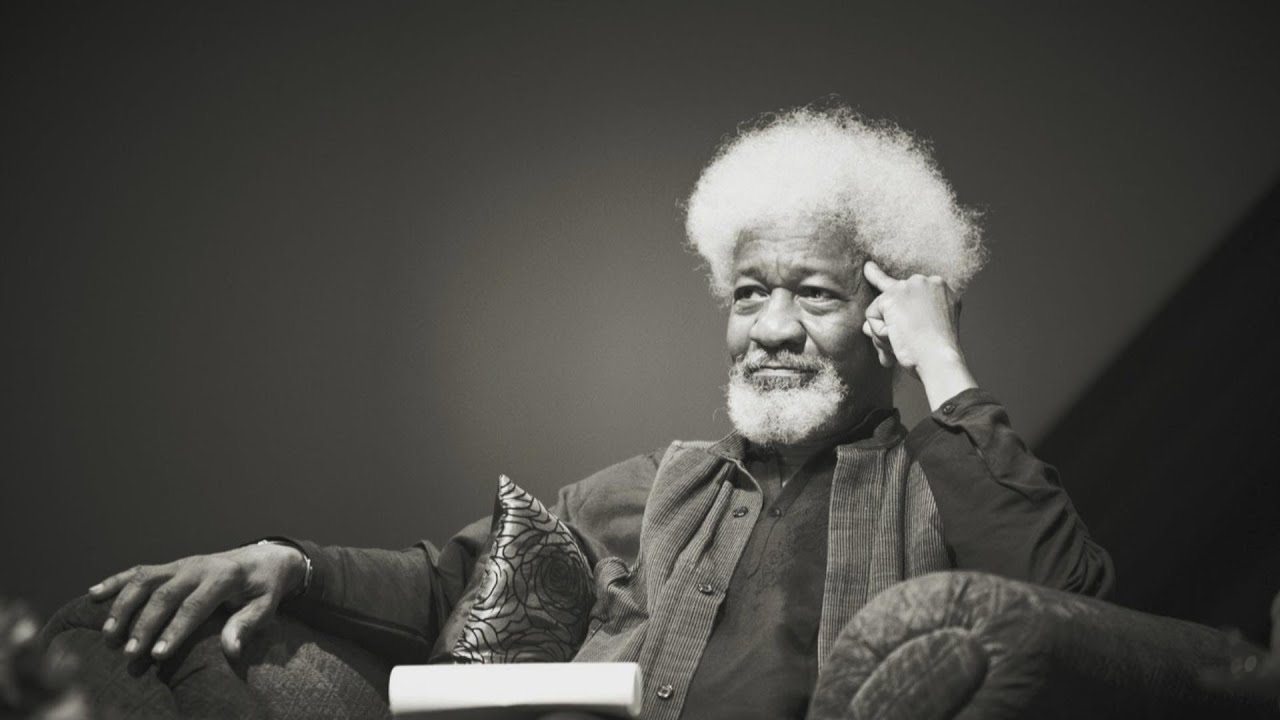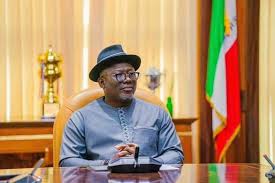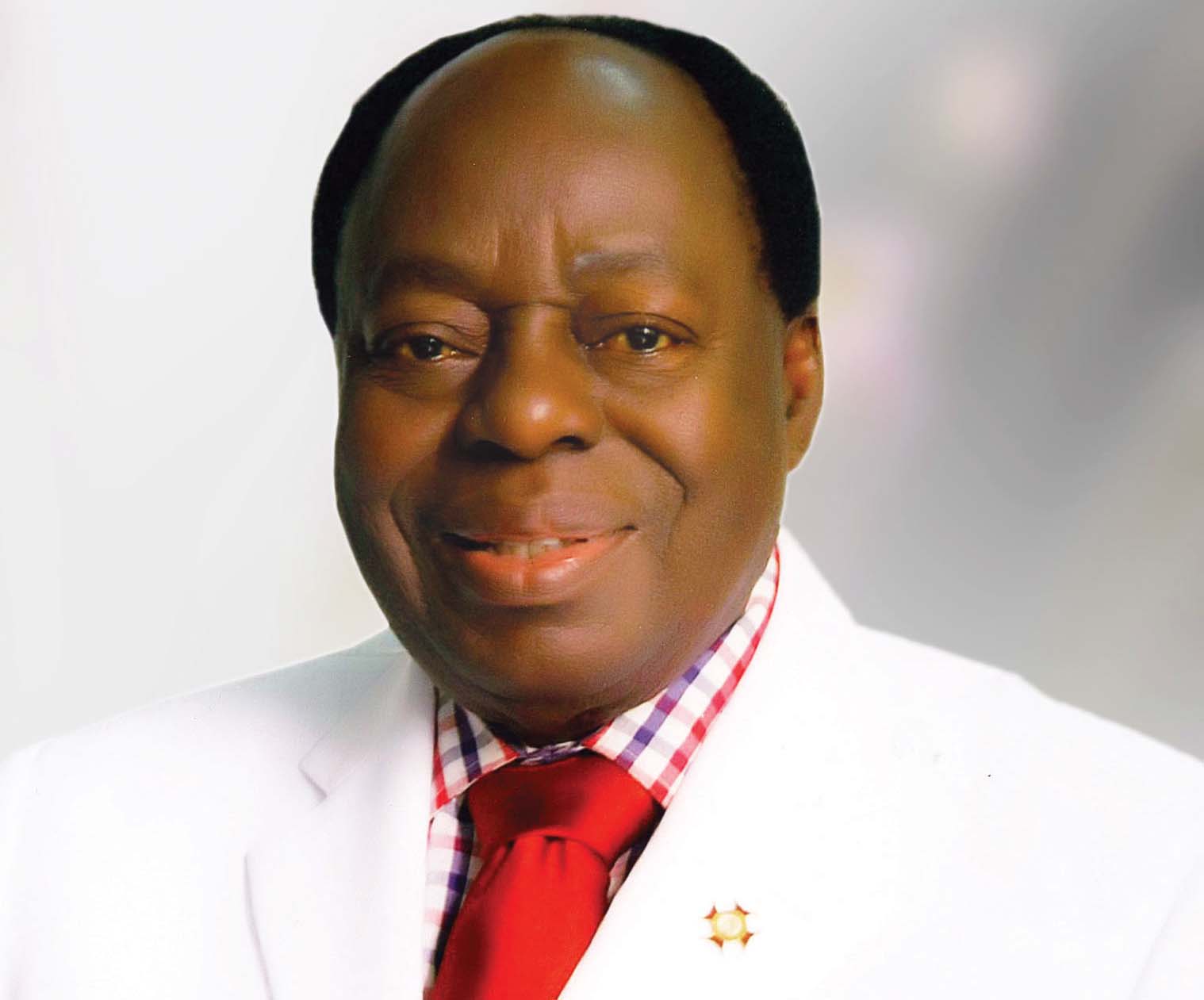Headlines
Soyinka: Omisore’s Election as APC National Secretary Has Crippled Probe of Bola Ige’s Murder

By Derrick Bangura
Prof. Wole Soyinka, a Nobel laureate, criticised the All Progressives Congress (APC) for electing Senator Iyiola Omisore as its National Secretary on Saturday.
Soyinka called Omisore “one of the primary suspects” in the assassination of Chief Bola Ige, the former Attorney General of the Federation and Minister of Justice.
The Nobel laureate said Omisore’s election had “hamstrung” the probe into Ige’s death in a statement posted Saturday.
After President Muhammadu Buhari reacted to his appeal to re-open Ige’s unsolved murder at the 20th anniversary of the tragic incident, the Nobel laureate pondered why Omisore was appointed as the party’s scribe.
He raised diverse questions on Buhari’s commitment to resolving the murder case after he had ordered the Inspector-General of Police, Alkali Baba to re-open the case files and resume the investigation.
Ige, also a former governor of old Oyo State, was gruesomely murdered on December 23, 2001, by yet-to-be-identified assailants in his Solemilia Court located at No 8, Akinlabi Sanda Close, Bodija in Ibadan, Oyo State.
His murder triggered the sudden death of his wife, Justice Atinuke Ige.
Omisore, the then Deputy Governor of Osun State, was fingered in the murder of the late AGF as the prime suspect, having been entangled in the protracted internal crisis that plagued the defunct Alliance for Democracy (AD).
Ige, Omisore and his former principal, Chief Bisi Akande, were deeply involved in the party’s crisis.
Ige’s assassination was linked to an altercation that happened at the palace of Ooni of Ife, the late Oba Sijuwade Okunade during the conferment of chieftaincy title on some personalities.
In December 2002, Omisore was impeached as the Deputy Governor of Osun State over breach of oath of office and other offences.
After his impeachment, Omisore was arrested and detained over Ige’s murder but he repeatedly denied any involvement.
He was however, discharged and acquitted in June 2004 by an Ibadan High Court, which cited “contradictions and inconsistencies” as well as insufficient evidence in the prosecution’s case.
Omisore, a former senator, was adopted as the APC National Secretary at the party’s last national convention in Abuja.
Lamenting what he described as an unusual turn of events, Soyinka, in his statement yesterday, said these events had raised questions because the ruling party had just elected as its National Secretary one of the prime suspects of the most notorious of the nation’s unsolved murders.
He said: “Not for a moment does one suggest that mere accusation, even trial, presumes guilt. More than a mere verdict is involved in any trial, however.
“The process of arriving at that ultimate destination – justice – is integral to the very concept of democracy and equality under the law. That process is one of the structures of civic education.
“Unresolved till today were quite some untidy, even suspect aspects of the investigation, prosecution and trials, aspects, which revealed improper cell co-habitation by suspects under custody.
“That this led necessarily to recantations of earlier depositions is not thereby proven, but the fact remains that such U-turns did take place. One was so brazen that it induced a heart attack that proved fatal to the victim’s wife, another Justice – Mrs Atinuke Ige.
“That the prime suspect was privileged in some improper ways went beyond mere allegation. Political interventions, including pressure on the judiciary during bail hearings, cannot be denied. A judge under such pressure kept a diary with accusations, pages of which he consigned to friends for safekeeping.”
Explaining what Omisore’s emergence means to re-opening Ige’s murder case, Soyinka said the resumption of an investigation into the murder case was already hamstrung and disrobed of credibility with the emergence of a prime suspect in the case as the National Secretary of the ruling APC.
With Omisore’s emergence as the APC National Secretary, Soyinka rhetorically asked: “Is the Inspector-General of Police equipped to confront political obstacles in a resumption of investigation?
“Is there any guarantee that the result will see the light of day? How suspect, ab initio, will be the conclusions, given the present political ordering? To this layman, that investigative revisit is already hamstrung and disrobed of credibility.
“I think the nation should simply relieve President Buhari of his pledge. I am certain the Inspector-General of Police will be equally relieved and can now turn his mind and energy to the national accustomed posture – business as usual.”
Soyinka wondered what happened to Buhari’s pledge to re-open an enquiry into the country’s spate of political murders in response to his demand at the 20th anniversary of Ige’s murder.
He lamented that barely three months had passed since the 20th anniversary of Ige’s murder – an occasion, which according to him, was used to remind the president of a subsisting election pledge.
He said: “That pledge was to re-open the files on the spate of unsolved political assassinations that had plagued the nation in recent decades. Prominent among those cases was that of the Minister of Justice, murdered on his way to take up a prestigious position with the United Nations.
“Presidential response was swift. Buhari ordered the Inspector-General of Police to re-open those files and resume investigations. The nation has patiently awaited even a hint of work in progress.
“Most, I am certain, expect no less than a revaluation of prior investigative efforts. None, to my knowledge, has attempted to rush the Chief of Police and his team into judgment.
“We all take solace in the knowledge that the wheels of justice grind slowly, but they arrive. Eventually,” Soyinka said in his statement doubting the president’s pledge to resolve Ige’s murder.
Headlines
Noble Ladies Champion Women’s Financial Independence at Grand Inauguration in Abuja

Women from diverse backgrounds across Nigeria and beyond gathered at the Art and Culture Auditorium, Abuja, for the inauguration and convention of the Noble Ladies Association. The event, led by the association’s Founder and “visionary and polished Queen Mother,” Mrs. Margaret Chigozie Mkpuma, was a colourful display of feminine elegance, empowerment, and ambition.
The highly anticipated gathering, attended by over 700 members and counting, reflected the association’s mission to help women realise their potential while shifting mindsets away from dependency and over-glamorization of the ‘white collar job.’ According to the group, progress can be better achieved through innovation and creativity. “When a woman is able to earn and blossom on her own she has no reason to look at herself as a second fiddle,” the association stated.
One of the association’s standout initiatives is its women-only investment platform, which currently offers a minimum entry of ₦100,000 with a return of ₦130,000 over 30 days—an interest rate of 30 percent. Some members invest as much as ₦1 million, enjoying the same return rate. Mrs. Mkpuma explained that the scheme focuses on women because “women bear the greater brunt of poverty” and the platform seeks “to offer equity in the absence of economic equality.”
Education is also central to the Noble Ladies’ mission, regardless of age. Their mantra, “start again from where you stopped,” encourages women to return to school or upgrade their skills at any stage in life. The association believes that financial stability is vital in protecting women from cultural practices that dispossess widows of their late husbands’ assets, while also enabling them to raise morally and socially grounded families.
Founded on the vision of enhancing women’s skills and achieving financial stability, the association rests on a value system that discourages pity and promotes purpose. “You have a purpose and you build on that purpose to achieve great potentials and emancipation,” Mrs. Mkpuma said.
A criminologist by training and entrepreneur by practice, she cautions against idleness while waiting for formal employment. “There are billions in the informal and non-formal sectors waiting to be made,” she said, rejecting the “new normal of begging” and urging people to “be more introspective to find their purpose in life and hold on to it.”
Mrs. Mkpuma’s management style keeps members actively engaged, focusing on vocational skills and training to prepare them for competitive markets. She is exploring “innovative integration of uncommon technologies” and is already in talks with international franchises to invest in Nigeria, with Noble Ladies as first beneficiaries.
The association’s core values include mutual respect, innovation, forward-thinking, equal opportunity, and financial emancipation. With plans underway to establish a secretariat in the heart of Abuja, the group aims to expand its impact.
The event drew high-profile guests, including former Inspector General of Police, Mike Okiro, and a host of VIPs, marking a significant milestone in the association’s drive for women’s empowerment.
Headlines
NEPZA, FCT agree to create world-class FTZ environment

The Nigeria Export Processing Zones Authority (NEPZA) has stepped in to resolve the dispute between the Federal Capital Territory Administration and the Abuja Technology Village (ATV), a licensed Free Trade Zone, over the potential revocation of the zone’s land title.
Dr. Olufemi Ogunyemi, the Managing Director of NEPZA, urged ATV operators and investors to withdraw the lawsuit filed against the FCT administration immediately to facilitate a roundtable negotiation.
Dr. Ogunyemi delivered the charge during a courtesy visit to the Minister of the Federal Capital Territory, Barrister Nyesom Wike, on Thursday in Abuja.
You will recall that the ATV operators responded to the revocation notice issued by the FCT administration with a lawsuit.
Dr. Ogunyemi stated that the continued support for the growth of the Free Trade Zones Scheme would benefit the nation’s economy and the FCT’s development, emphasizing that the FCT administration recognized the scheme’s potential to accelerate industrialisation.
Dr. Ogunyemi, also the Chief Executive Officer of NEPZA, expressed his delight at the steps taken by the FCT minister to expand the economic frontier of the FCT through the proposed Abuja City Walk (ACW) project.
Dr. Ogunyemi further explained that the Authority was preparing to assess all the 63 licensed Free Trade Zones across the country with the view to vetting their functionality and contributions to the nation’s Foreign Direct Investment and export drives.
“I have come to discuss with His Excellency, the Minister of the Federal Capital Territory on the importance of supporting the ATV to succeed while also promoting the development of the Abuja City Walk project. We must work together to achieve this for the good of our nation,” he said.
On his part, the FCT Minister reiterated his unflinching determination to work towards President Bola Ahmed Tinubu’s Renewed Hope Agenda by bringing FDI to the FCT.
“We must fulfil Mr. President’s promises regarding industrialization, trade, and investment. In this context, the FCT will collaborate with NEPZA to review the future of ATV, a zone that was sponsored and supported by the FCT administration,” Wike said.
Barrister Wike also said that efforts were underway to fast-track the industrialisation process of the territory with the construction of the Abuja City Walk.
The minister further said the Abuja City Walk project was planned to cover over 200 hectares in the Abuja Technology Village corridor along Airport Road.
According to him, the business ecosystem aimed to create a lively, mixed-use urban center with residential, commercial, retail, hospitality, medical, and institutional facilities.
He added that the ACW would turn out to be a high-definition and world-class project that would give this administration’s Renewed Hope Agenda true meaning in the North-Central Region of the country.
Barrister Wike also indicated his continued pursuit of land and property owners who failed to fulfil their obligations to the FCT in his determination to develop the territory.
Headlines
Benue IDPs block highway, demand return to ancestral homes

Vehicular movement along the Yelwata axis of the Benue–Nasarawa highway was brought to a standstill on Wednesday as Internally Displaced Persons, IDPs, staged a protest, demanding immediate return to their ancestral homes.
The protesters, believed to be victims of persistent attacks by suspected herdsmen, blocked both lanes of the busy highway for several hours, chanting “We want to go back home”.
The protest caused disruption, leaving hundreds of motorists and passengers stranded.
Eyewitnesses said the displaced persons, many of whom have spent years in overcrowded IDP camps, are expressing deep frustration over the government’s delay in restoring security to their communities.
“We have suffered enough. We want to return to our homes and farms,” one of the protesters told reporters at the scene.
Security personnel were reportedly deployed to monitor the situation and prevent any escalation, though tensions remained high as of press time.
Efforts to reach the Benue State Emergency Management Agency, SEMA, and other relevant authorities for comment were unsuccessful.
-

 Headlines4 years ago
Headlines4 years agoFacebook, Instagram Temporarily Allow Posts on Ukraine War Calling for Violence Against Invading Russians or Putin’s Death
-

 Headlines4 years ago
Headlines4 years agoNigeria, Other West African Countries Facing Worst Food Crisis in 10 Years, Aid Groups Say
-

 Foreign3 years ago
Foreign3 years agoNew York Consulate installs machines for 10-year passport
-

 News1 year ago
News1 year agoZero Trust Architecture in a Remote World: Securing the New Normal
-

 Entertainment3 years ago
Entertainment3 years agoPhyna emerges winner of Big Brother Naija Season 7
-

 Headlines1 year ago
Headlines1 year agoNigeria Customs modernisation project to check extortion of traders
-

 Economy2 years ago
Economy2 years agoWe generated N30.2 bn revenue in three months – Kano NCS Comptroller
-

 Entertainment2 years ago
Entertainment2 years agoMovie download platform, Netnaija, announces closure














